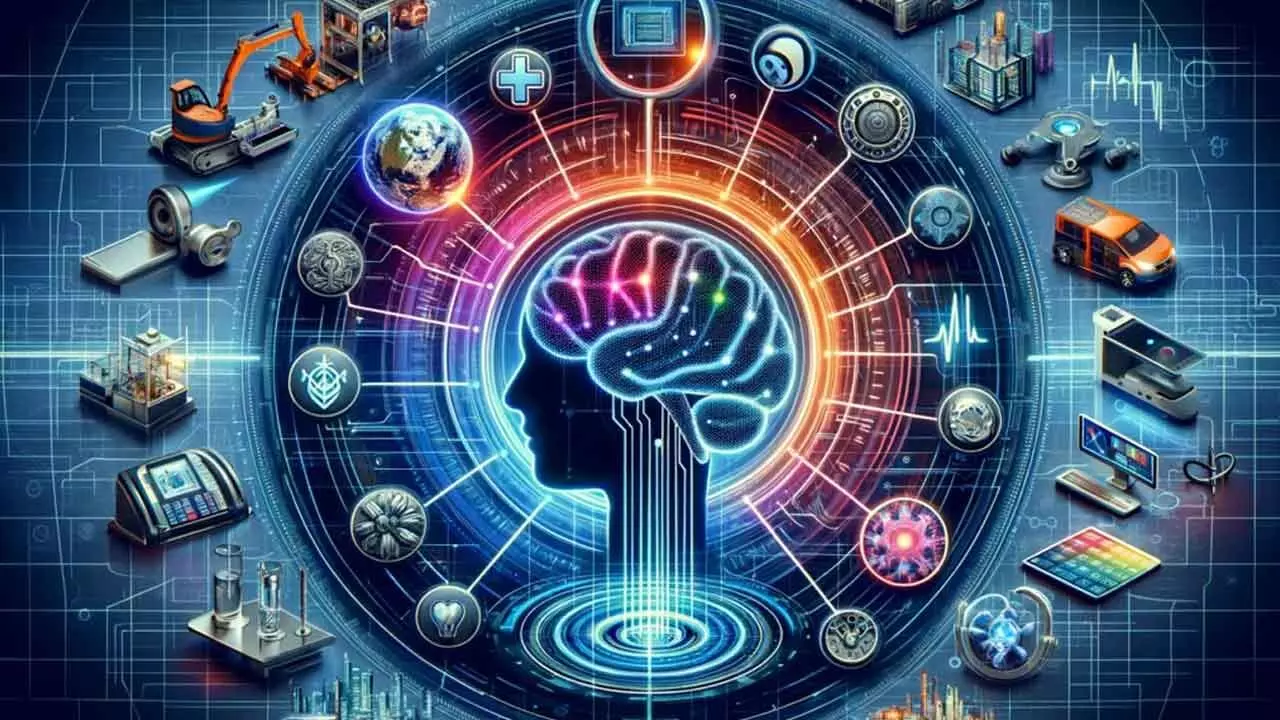Budget 2025: Laying Foundation For A Tech-Powered Viksit Bharat
The Union Budget 2025-26 reinforces India’s Viksit Bharat 2047 vision with a Rs 20,000 crore allocation for research, development, and innovation
Budget 2025: Laying Foundation For A Tech-Powered Viksit Bharat

This initiative aims to boost private-sector R&D investment, enhance technological advancements, and address India's low R&D spending. Key measures include the Deep Tech Fund of Funds to support AI, biotech, and quantum startups, a Rs 2,300 crore Bio-RIDE scheme for biotechnology, and increased funding for AI-driven governance
India’s vision of Viksit Bharat 2047 relies on leveraging science and technology. The Union Budget 2025-26, presented by Finance Minister Nirmala Sitharaman, reinforces this with a Rs 20,000 crore allocation for research, development, and innovation. This bold initiative highlights the government's commitment to a knowledge-driven economy. Let us analyze the potential of these allocations and initiatives to drive sustainable development and realize the Viksit Bharat vision.
The Rs 20,000 crore allocation for research, development and innovation is a transformative move. It aims to boost private-sector-led research and innovation, addressing India’s low R&D spending (less than 1 per cent of GDP) and limited private sector participation (around 30 per cent). This funding encourages startups and industries to invest in cutting-edge technologies.
The National Geospatial Mission, with a Rs 100 crore outlay, focuses on modernizing land records, enhancing urban planning, and improving infrastructure design. Experts see this as a key tool for climate-resilient development—for instance, GIS-based mapping can help identify urban heat pockets, enabling targeted cooling strategies. This initiative, backed by Pradhan Mantri Gati Shakti, moves India toward smarter, more sustainable countries.
The budget also introduces a Deep Tech Fund of Funds to support next-generation startups in AI, biotechnology, and quantum computing. This initiative strengthens India’s position as a global innovation hub, particularly in emerging sunrise sectors (e.g. electric vehicles, electronics and semiconductors, artificial intelligence etc.).
The budget allocates 10,000 fellowships under the Prime Minister’s Research Fellowship (PMRF) over the next five years, supporting research at premier institutions like IITs and IISc to foster innovation among young scientists. Additionally, 50,000 Atal Tinkering Labs (ATLs) will be set up in government schools, promoting STEM education through hands-on learning and problem-solving. This initiative aims to build a future-ready workforce to drive India's technological progress.
The Union Budget 2025-26 prioritizes biotechnology and green energy as key drivers of sustainable development. The Bio-RIDE scheme has been allocated Rs 2,300 crore to support biomanufacturing, research, and entrepreneurship in biotechnology.
The Budget has unlocked the potential of nuclear energy by allowing private sector participation, a move hailed as a "paradigm shift" by Union Minister Dr Jitendra Singh. This reform, mirroring the success of the space sector, aims to accelerate innovation and reduce reliance on public funding. In the energy sector, the Nuclear Energy Mission targets 100 GW of nuclear power by 2047, including the deployment of five Small Modular Reactors (SMRs) by 2033. These initiatives not only meet India’s growing energy demands but also strengthen its position in green technology innovation.
The Union Budget 2025-26 has placed artificial intelligence (AI) at the forefront of India’s technological advancement, with significant allocations aimed at fostering innovation and integration across key sectors. Among the highlights is the establishment of a Centre of Excellence in AI for Education, backed by a Rs 500 crore capital outlay.
The IndiaAI Mission, launched in April 2024, has received a monumental boost with a Rs 2,000 crore allocation for FY26. This mission is designed to integrate AI into critical areas such as agriculture, healthcare, and governance, ensuring that cutting-edge technology drives efficiency and innovation in these fields.
Additionally, funding for AI-focused Centres of Excellence in governance has seen an 82 per cent rise, increasing from Rs 110 crore in FY25 to Rs 200 crore in FY26. These centres will play a pivotal role in leveraging AI to enhance public service delivery and decision-making processes. Furthermore, AI has been seamlessly integrated into various national initiatives, including smart cities, agriculture, healthcare, and rural development, underscoring its growing importance in India’s digital transformation journey.
The budget aligns with the "Viksit Bharat 2047" vision by emphasizing STEM education, biotechnology, and green energy. However, realizing this vision necessitates consistent investment, strategic execution, and a culture of continuous innovation. The fusion of technology and tradition paves the way for a prosperous and developed future for India.
(The author is Associate Professor & Head, School of Media & Journalism, DY Patil International University, Akurdi, Pune)

